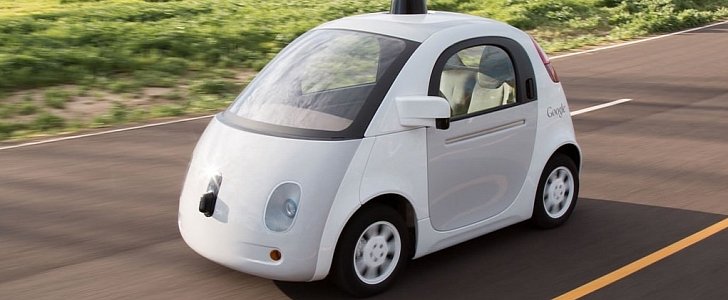Whenever something bad happens, there’s always someone who benefits from it. Caught a cold? The medics are there for you, but at a cost, and they’ll happily recommend a pill or two so that the pharmaceutical companies can join in on the party as well.
Strangely enough, the saying holds its worth the other way around as well: whenever something good happens, there are those who bemoan it, even though, for obvious reasons, they might be a little reluctant to show it. I mean, it’s like saying you don’t like Christmas - it’s one of those things that spells social suicide.
Let’s say you and I have never been involved in a traffic incident - that doesn’t mean we can’t be happy about the fact that the autonomous cars come with a promise for a drastically reduced number of accidents. It’s just the kind of prospect on which we should all be able to agree it’s a good thing.
And we do. It’s just that a lower number of dented cars would also mean less revenue for the insurance companies, which kind of takes away from the joy of the growing sales registered over the last few years.
A global study conducted by consulting firm PTOLEMUS shows that by 2030 our roads will be populated by anywhere around 380 million cars with some degrees of autonomous driving capacities. That means anything from a fully driverless car to features such as lane keeping or accident mitigation.
In broad numbers, this would mean a 30 percent decline in the number of accidents, and a hefty penalty on the insurance premiums. According to the study, this specialized market could fall back to about 60 percent of its current value.
The major insurance companies are reacting to what has got to be a worrying trend for them, even though they haven’t come up with a solution yet. In the UK, for instance, 13 car insuring companies have created a group called ABI, in an attempt to make sure they work together for the good of the market by coming up with viable ways to react to these important changes.
What they would want to make very clear is that they’re not opposing the introduction of such features on a car. James Dalton, director of general insurance policy at the ABI, said the following in a press release quoted by CNBC: “Contrary to what some people might expect, insurers are not standing in the way of this development but actively looking to support progress and innovation. Truly driverless cars have the potential to dramatically reduce deaths and injuries on the roads and could revolutionize what we think of as public transport.”
So if you thought you, as a driver, will have to face tough times ahead because of this whole autonomous car revolution, you can rest assured others have it even worse. If you’re a driver and you also work in the car insuring business, on the other hand, it’s been nice knowing you...
Let’s say you and I have never been involved in a traffic incident - that doesn’t mean we can’t be happy about the fact that the autonomous cars come with a promise for a drastically reduced number of accidents. It’s just the kind of prospect on which we should all be able to agree it’s a good thing.
And we do. It’s just that a lower number of dented cars would also mean less revenue for the insurance companies, which kind of takes away from the joy of the growing sales registered over the last few years.
A global study conducted by consulting firm PTOLEMUS shows that by 2030 our roads will be populated by anywhere around 380 million cars with some degrees of autonomous driving capacities. That means anything from a fully driverless car to features such as lane keeping or accident mitigation.
In broad numbers, this would mean a 30 percent decline in the number of accidents, and a hefty penalty on the insurance premiums. According to the study, this specialized market could fall back to about 60 percent of its current value.
The major insurance companies are reacting to what has got to be a worrying trend for them, even though they haven’t come up with a solution yet. In the UK, for instance, 13 car insuring companies have created a group called ABI, in an attempt to make sure they work together for the good of the market by coming up with viable ways to react to these important changes.
What they would want to make very clear is that they’re not opposing the introduction of such features on a car. James Dalton, director of general insurance policy at the ABI, said the following in a press release quoted by CNBC: “Contrary to what some people might expect, insurers are not standing in the way of this development but actively looking to support progress and innovation. Truly driverless cars have the potential to dramatically reduce deaths and injuries on the roads and could revolutionize what we think of as public transport.”
So if you thought you, as a driver, will have to face tough times ahead because of this whole autonomous car revolution, you can rest assured others have it even worse. If you’re a driver and you also work in the car insuring business, on the other hand, it’s been nice knowing you...

